Many of us have wondered what it would be like to traverse through your past, revisiting tender moments, finding closure in others, and tiptoeing past those that are more unpleasant. By tapping into the unchartered waters of combining art, technology, and neurological data, Turkish director, designer, and media artist Refik Anadol may have discovered how to enter this realm and see what memories are made of. At a recent gallery showing at the Pilevneli Gallery in Istanbul, Anadol revealed a series of riveting data installations titled, “Melting Memories.” Each structure was comprised of a high media wall controlled by custom software showcasing hypnotic augmented data sculptures, data paintings, and light projections on LED screens.
In the simplest terms, the custom software reads, reviews, and visualizes datasets collected from Alzheimer’s disease research. This highly complex method results in algorithms that produce a series of epic multi-dimensional shifting forms.
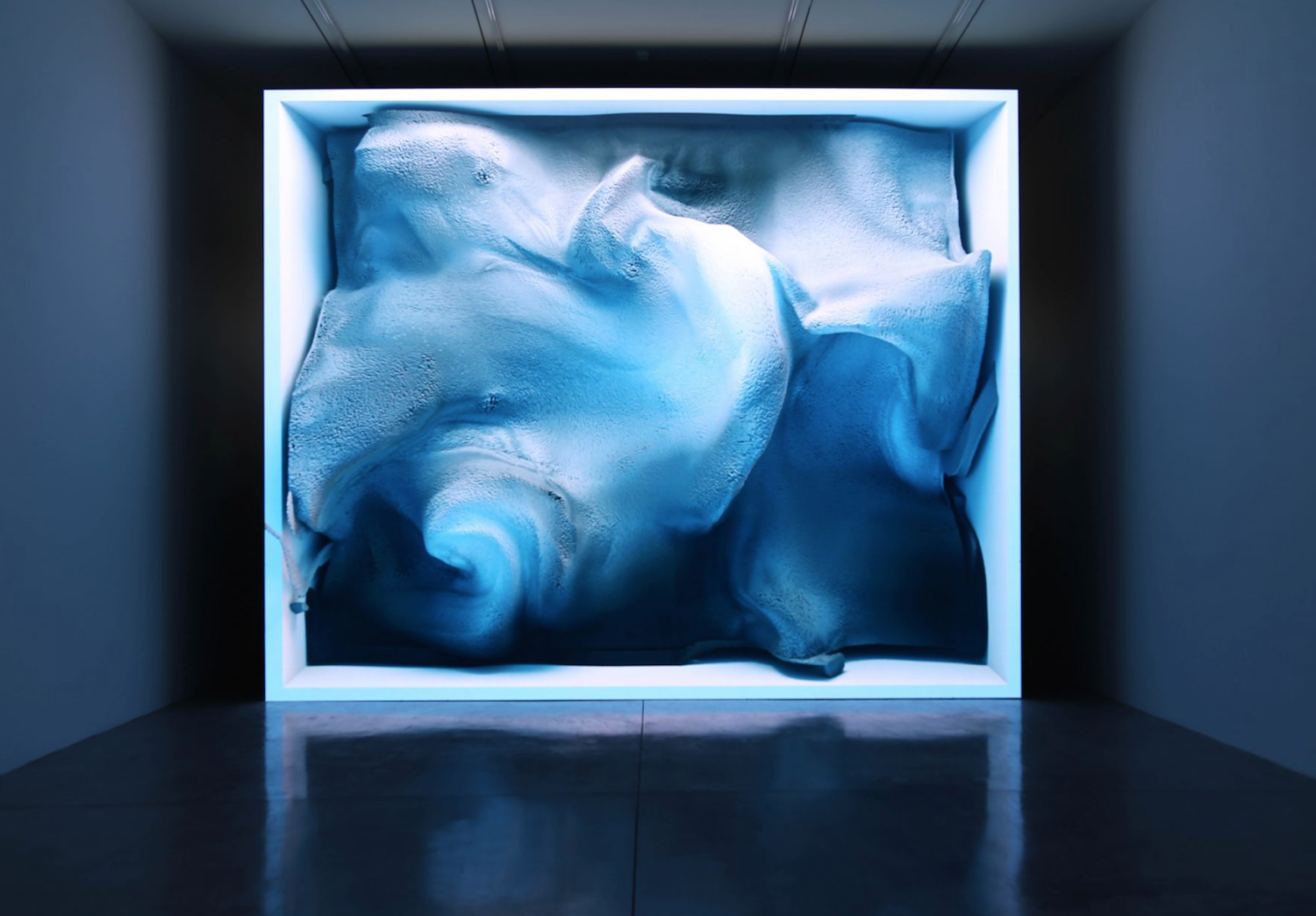
Credit: Refik Anadol – “Synthetic Memory” sculpture
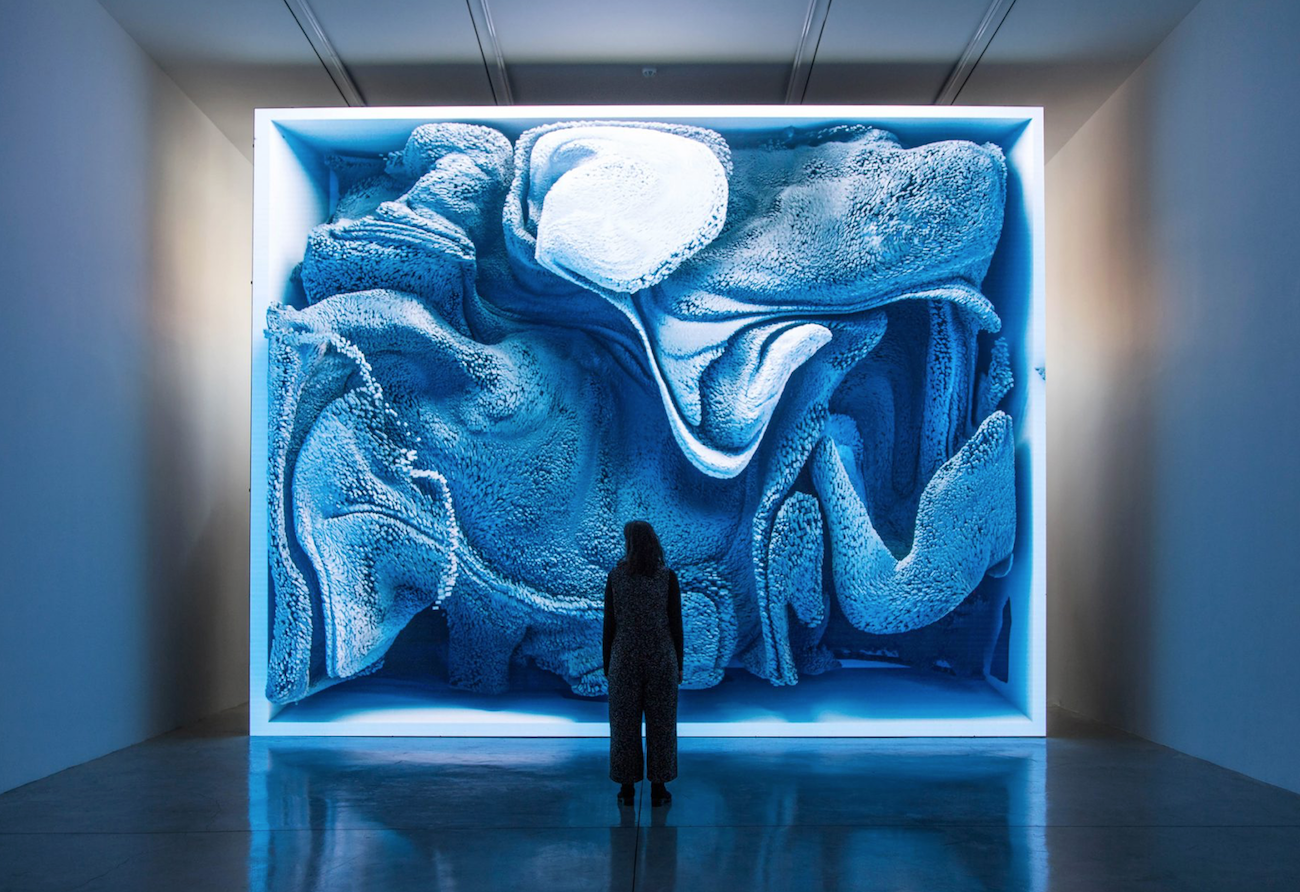
Each shift represents the process of cognitive thought ranging from memory build-up and motor movements to retention and decay, allowing the viewer to reflect on issues of “aging, consciousness, subconsciousness, and ultimately their own mortality.” The data combined with Anadol’s paintings, sculptures and light projections result in fluid mesmerizing works of art.
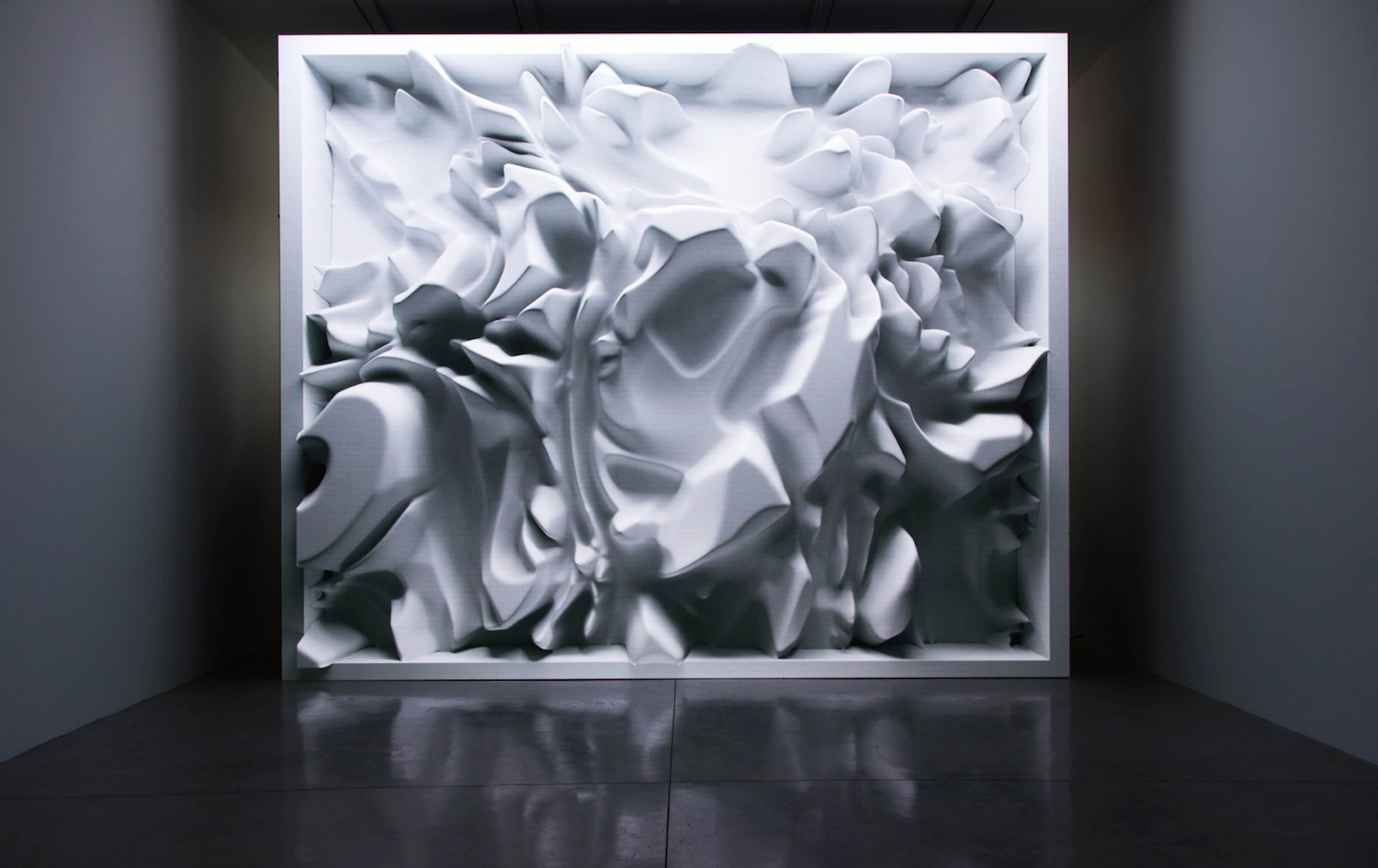
“Recall” sculpture
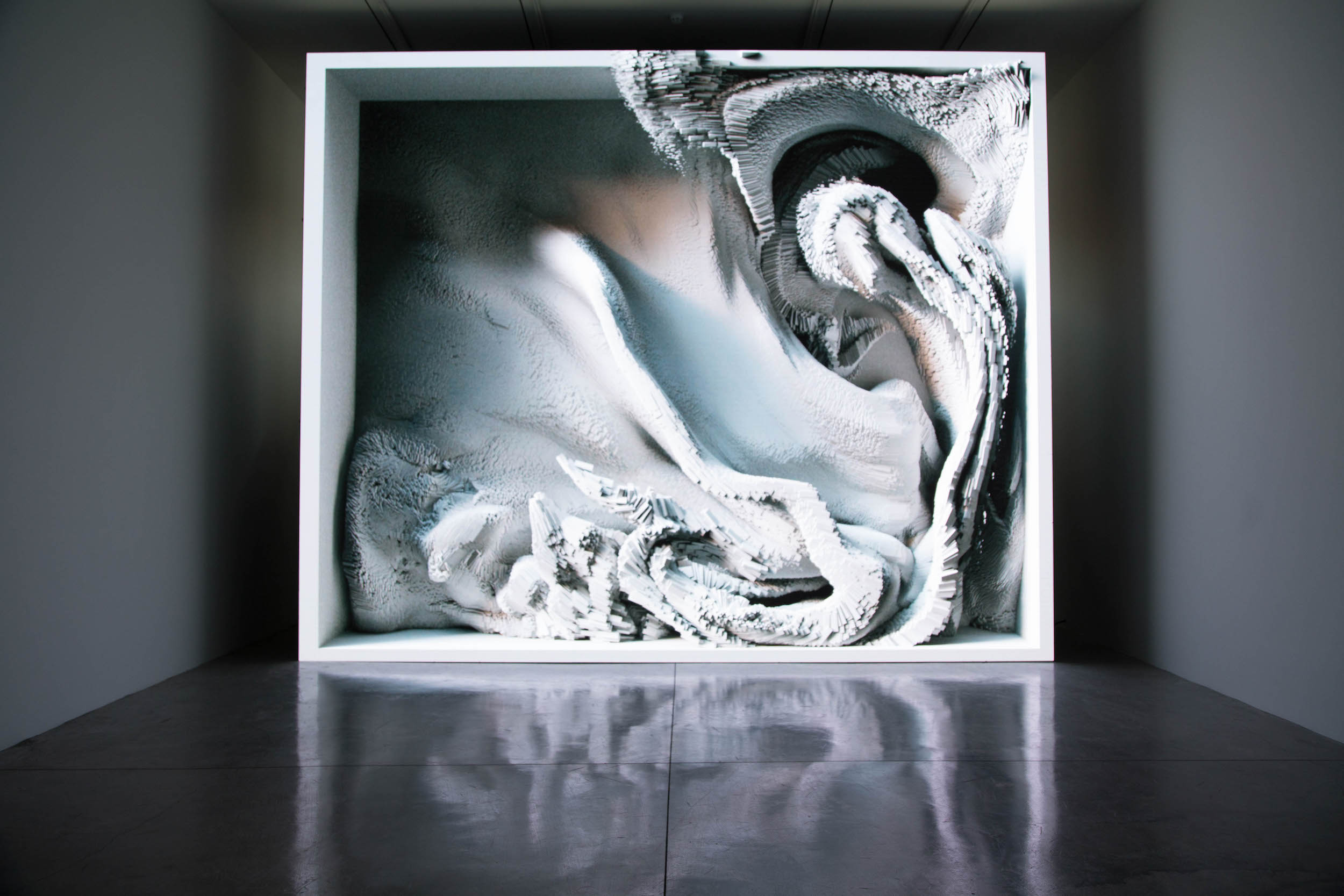
“Remember” sculpture
Not Your Average Art Collaboration
An estimated 5.7 million Americans of all ages are living with Alzheimer’s dementia in 2018. This debilitating disease, along with several other forms of cognitive impairment, is currently being studied at the Neuroscape Laboratory at the University of California (UCSF). Utilizing the lab’s research, patient’s memories, and other data, Anadol combined critical experimentation with his creative genius.
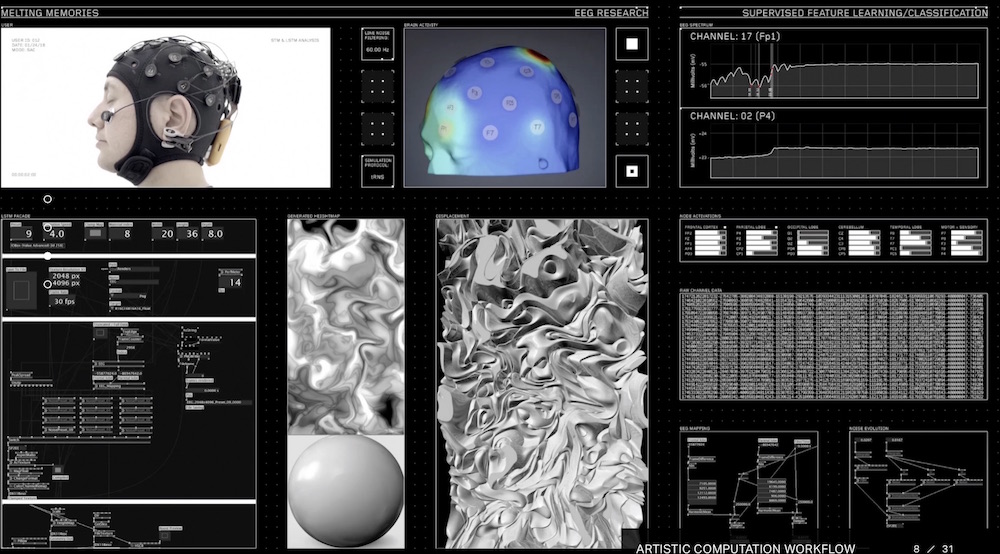
“Melting Memories” workflow
On his website, Anadol provides a detailed explanation of the process behind the installations as well as his unique collaboration with the famous Neuroscape lab, “Each work grows out of experiments with the advanced technology tools provided by the Neuroscape Laboratory. Anadol gathers data on the neural mechanisms of cognitive control from an EEG (electroencephalogram) that measures changes in brain wave activity and provides evidence of how the brain functions over time. These datasets constitute the building blocks for the unique algorithms that the artist needs for the visual structures on display.”
Anadol’s Influences

Artist Refik Anadol
What sparked “Melting Memories” and Anadol’s journey into the complexities of the human mind?
He repeatedly emphasizes that the project and his creative process were heavily influenced by, “René Descartes’s arguments on perception, medical studies on neurological diseases, the human memory from different time periods, and the movie Blade Runner 2049. Melting Memories is Anadol’s second solo exhibition at the Pilevneli Gallery. Visit refikanadol.com or the Refik Anadol Studio, a technology-driven art and design studio, for more information on his latest works, on-going collaborations, and shows.

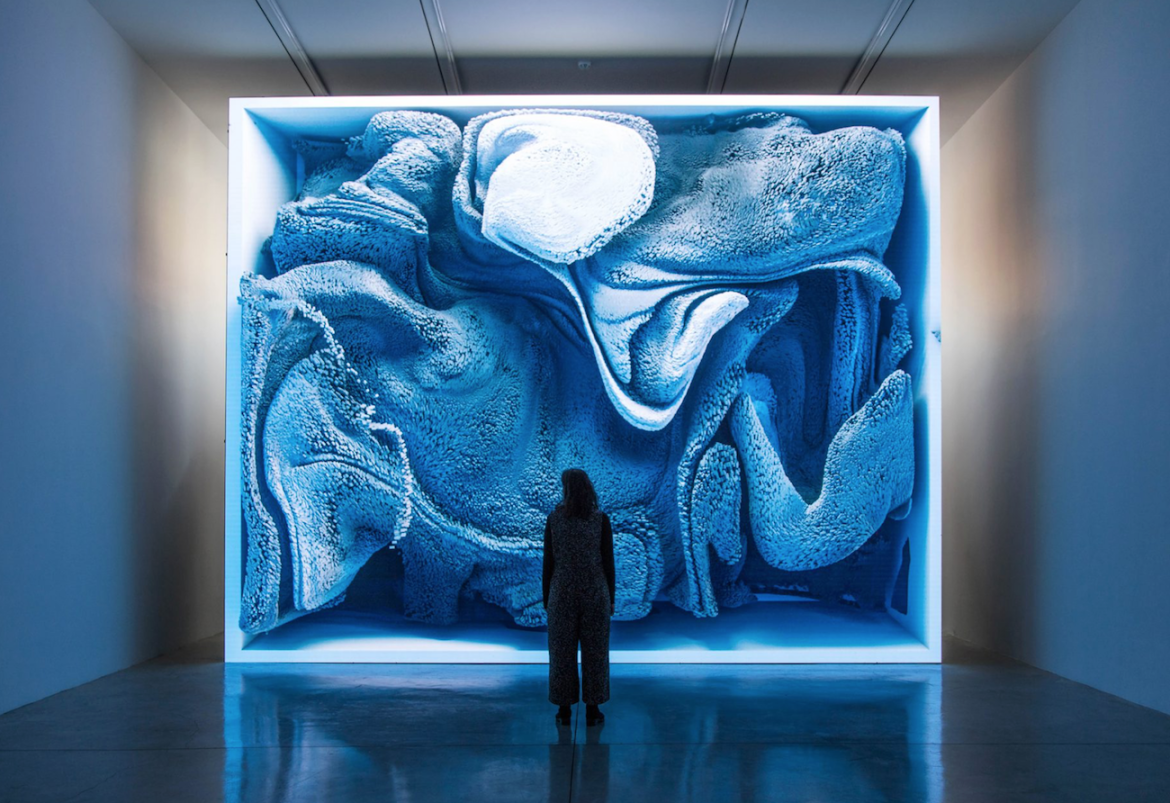








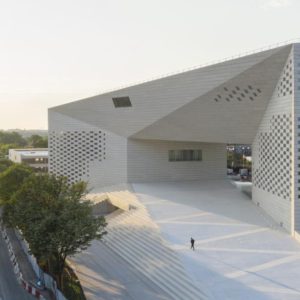
Leave a reply